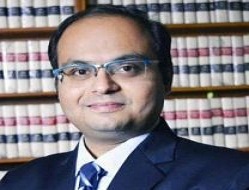Marking another milestone in the progress of India, a young Indian lawyer Aniruddha Rajput has won a seat in the hotly-contested United Nations (UN) General Assembly elections for membership its top body of legal experts, garnering the highest number of votes in the Asia-Pacific group.
About UNGA :
The United Nations General Assembly (UNGA) is one of the six principal organs of the United Nations and the only one in which all member nations have equal representation.
- Its powers are to oversee the budget of the United Nations, appoint the non-permanent members to the Security Council, receive reports from other parts of the United Nations and make recommendations in the form of General Assembly Resolutions. It has also established a wide number of subsidiary organs.
- The General Assembly meets under its president or Secretary-General in regular yearly sessions the main part of which lasts from September to December and resumed part from January until all issues are addressed (which often is just before the next session’s start). It can also reconvene for special and emergency special sessions.
- Its composition, functions, powers, voting, and procedures are set out in Chapter IV of the United Nations Charter.
- The first session was convened on 10 January 1946 in the West minister Central Hall in London and included representatives of 51 nations.
- Voting in the General Assembly on important questions, namely, recommendations on peace and security, budgetary concerns and the election, admission, suspension or expulsion of members – is bya two-thirds majority of those present and voting. Other questions are decided by a straightforward majority.
- Each member country has one vote. Apart from approval of budgetary matters, including adoption of a scale of assessment, Assembly resolutions are not binding on the members.
- The Assembly may make recommendations on any matters within the scope of the UN, except matters of peace and security under Security Council consideration.
- The one state, one vote power structure potentially allows states comprising just five percent of the world population to pass a resolution by a two-thirds vote.
About the Lawyer :
Aniruddha Rajput(33) is among the 34 individuals elected by the General Assembly as members of the International Law Commission, the UN organ tasked with the progressive development of international law and its codification.
- A practicising lawyer of India’s Supreme Court, Rajput is also the first Indian nominee chosen from outside a close circle of lawyers of the Ministry of External Affairs.

- An alumnus of the London School of Economics and Political Science, Rajput was member of an expert group appointed by the Law Commission of India to study and comment upon the Model Bilateral Investment Treaty 2015 of India, according to his profile submitted to the UN
- He has written several books, chapters, articles, conference papers on diverse legal subjects and his areas of expertise in international laws include Sources of International Law, International Arbitration, Law of the Sea, Use of Force, UN Law & Practice and International Trade Law (WTO Law).
- It is noted that Japan’s Shinya Murase got the second highest number of votes in the Asia-Pacific group at 148, followed by Mahmoud Daifallah Hmoud of Jordan and Huikang Huang of China with 146 votes each, Korea’s Ki Gab Park with 136 votes, Ali bin Fetais Al-Marri of Qatar with 128 votes and Hong Thao Nguyen of Viet Nam with 120 votes.
AffairsCloud Recommends Oliveboard Mock Test
AffairsCloud Ebook - Support Us to Grow
Govt Jobs by Category
Bank Jobs Notification





